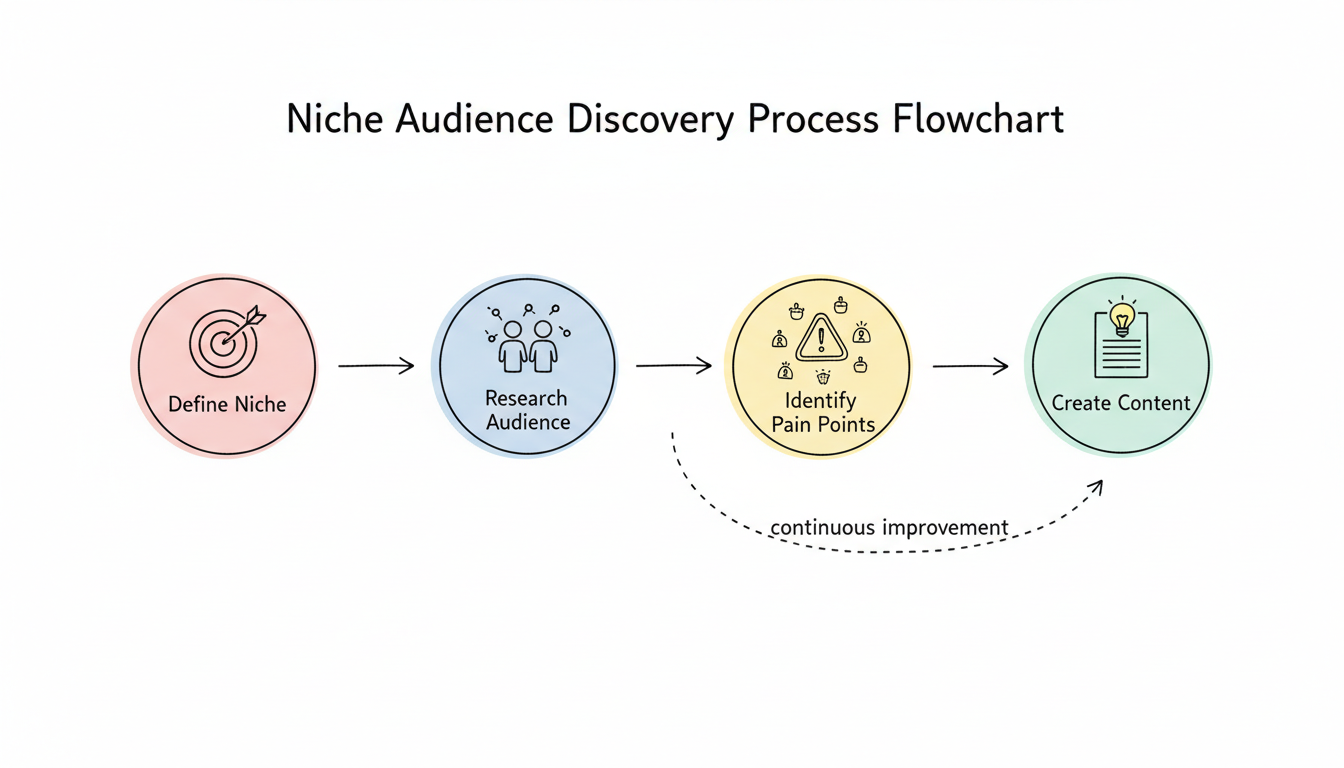In today's digital landscape, having a well-optimized website is crucial for businesses aiming to reach their target audience. This is especially true for niche markets and specific audiences, where competition can be fierce and the need to stand out becomes even more pronounced.
Before delving into the strategies tailored for niche markets and specific audiences, it's important to grasp the basics of SEO. Search Engine Optimization (SEO) is the practice of optimizing your website to improve its visibility on search engine results pages (SERPs).
When your website ranks higher on SERPs, it becomes more noticeable and gets more organic traffic. This increased visibility can have a significant impact on your business, as studies have shown that the majority of users tend to click on the top results displayed by search engines.
SEO encompasses various techniques, including keyword research, content creation, and technical optimizations, all aimed at increasing your website's visibility to search engines. By implementing these strategies effectively, you can improve your website's chances of appearing on the first page of search results, where the majority of user clicks occur.
To improve your website's visibility, start with the basics. Begin by conducting keyword research to identify the specific terms and phrases your target audience is likely to search for. These keywords will serve as the foundation for your content creation and optimization efforts.
Once you have identified the keywords, it's essential to strategically incorporate them into your website's content. This can be done through on-page optimization techniques such as including keywords in your page titles, headings, meta descriptions, and throughout the body of your content. However, it's important to strike a balance and avoid keyword stuffing, as search engines may penalize websites that engage in this practice.
In addition to keyword optimization, it's crucial to ensure that your website is crawlable by search engines. This involves optimizing your website's structure and navigation to make it easy for search engine bots to find and index your web pages. By creating a logical site structure and using XML sitemaps, you can help search engines understand the hierarchy and organization of your website.
Furthermore, focusing on improving your website's loading speed and mobile optimization is essential. Users expect websites to load quickly, and search engines take loading speed into account when determining rankings. Additionally, with the increasing use of mobile devices for internet browsing, having a mobile-friendly website is crucial for both user experience and search engine rankings.
Unlike broad markets saturated with competitors, niche markets are highly specific and cater to a smaller audience. In these markets, SEO becomes even more critical as it helps businesses stand out and reach their target audience effectively.
By implementing SEO strategies, you can increase your website's visibility to individuals actively searching for products or services within your niche. This targeted approach allows you to connect with potential customers who are more likely to convert, leading to higher engagement and improved business outcomes.
Moreover, in niche markets, competition may be less fierce compared to broader markets. This presents an opportunity for businesses to establish themselves as authoritative sources within their niche through effective SEO strategies. By consistently producing high-quality content optimized for relevant keywords, businesses can position themselves as industry leaders and gain the trust and loyalty of their target audience.
Additionally, SEO can also help businesses in niche markets expand their reach beyond their immediate audience. By optimizing their website for local search, businesses can attract customers from specific geographical areas who are actively seeking their products or services. This localized approach allows businesses to tap into untapped markets and gain a competitive edge.

Knowing your niche market and understanding your audience's needs are crucial steps towards developing effective SEO strategies. Let's explore each of these aspects in more detail.
When it comes to identifying your niche, it's important to dig deep and find your unique value proposition. What sets you apart from your competitors? What expertise or passions do you bring to the table? By answering these questions, you can determine which specific market segment you aim to serve.
Defining your niche allows you to position yourself as an expert in that field. By focusing on a specific market, you can attract individuals who are specifically looking for the products or services you offer. This provides you with a competitive advantage and allows you to tailor your SEO strategies accordingly.
But how do you truly understand your audience's needs? It all starts with gaining insights into their preferences and behaviors. Market research is a powerful tool that can help you understand your target audience better. By conducting surveys and analyzing online consumer behavior, you can gather valuable data that will guide your SEO strategies.
Another important aspect of understanding your audience is identifying their pain points. What challenges do they face? What problems are they trying to solve? By answering these questions, you can create highly relevant and engaging content that addresses their needs. This will not only improve your website's visibility but also establish your brand as a valuable resource within your niche.
Additionally, it's crucial to analyze your audience's search behaviors. What keywords are they using to find information related to your niche? By understanding their search patterns, you can optimize your website's content to appear higher in search engine results, increasing your chances of attracting organic traffic.
In conclusion, identifying your niche market and understanding your audience's needs are essential steps in developing effective SEO strategies. By defining your niche and gaining insights into your audience, you can create tailored content that resonates with them and positions your brand as a valuable resource. So take the time to research, analyze, and understand your niche market and audience, and watch your SEO efforts flourish.

Now that you have a clear understanding of your niche market and audience, it's time to tailor your SEO strategies to maximize your impact. Let's explore two key aspects: keyword research and content creation.
Keyword research plays a crucial role in optimizing your website for niche markets. By identifying long-tail keywords that are specific to your niche and have lower competition, you can effectively target your ideal audience.
When conducting keyword research, it's important to consider the intent behind the searches. What are your potential customers looking for? By understanding their needs and desires, you can uncover valuable keywords that will attract the right kind of traffic.
Once you have identified these keywords, it's time to optimize your website's meta tags, headings, and content. Incorporate these relevant keywords naturally, ensuring that they flow seamlessly within your content. This not only helps search engines understand the relevance of your website to specific searches but also enhances the user experience by providing them with the information they are seeking.
Remember, it's not just about ranking higher in search results; it's about attracting your ideal audience. By focusing on long-tail keywords, you may have lower search volumes, but you are more likely to reach individuals who are genuinely interested in your niche and are more likely to convert into customers.
Content creation is an essential element of effective SEO strategies. Developing high-quality, informative, and engaging content is key to attracting and retaining your niche audience.
When creating content, it's important to keep your audience's needs and interests in mind. What are the burning questions they have? What challenges do they face? By addressing these concerns, you position yourself as a valuable resource within your niche.
Consider incorporating various content formats to cater to different preferences. Blog posts, articles, videos, and infographics can all be effective ways to communicate your message and engage with your audience. Experiment with different formats to see what resonates best with your niche market.
Remember, quality is paramount. Your content should not only be informative but also well-researched and well-written. By providing value and building trust with your audience, you increase the likelihood of them sharing your content, which can lead to more organic traffic and brand recognition.
Additionally, consider leveraging user-generated content. Encourage your audience to share their experiences, opinions, and ideas related to your niche. This not only adds diversity to your content but also fosters a sense of community and engagement.
In conclusion, tailoring your SEO strategies for your niche involves thorough keyword research and creating high-quality content that resonates with your audience. By understanding their needs and desires, you can position yourself as an authority within your niche and attract the right kind of traffic. Remember, SEO is an ongoing process, so continuously monitor and refine your strategies to stay ahead of the competition.
In addition to keyword research and content creation, technical SEO plays a crucial role in optimizing niche websites. Let's explore two key elements: website structure and mobile optimization.
An intuitive website structure and navigation are essential for both search engines and users. Organize your website's content into logical categories and use descriptive URLs that include relevant keywords. This will make it easier for search engines to crawl and index your web pages.
Ensure that your website's navigation is user-friendly and easy to use. Implement clear menus and navigation links, allowing users to find the desired information quickly. A well-structured website not only improves user experience but also helps search engines understand the hierarchy and relevance of your content.
In today's mobile-centric world, optimizing your website for mobile devices is critical. Ensure that your website is responsive and offers a seamless user experience across different screen sizes and devices.
Additionally, pay attention to your website's loading speed. Users expect quick access to information, and search engines prioritize fast-loading websites. Compress images, minify code, and leverage browser caching to improve your website's speed. These optimizations will enhance user experience and boost your website's visibility on SERPs.
Link building is an integral part of SEO strategies, even for niche markets. Let's discuss the importance of quality backlinks and strategies for effective link building.
Quality backlinks from reputable websites can significantly improve your website's authority and visibility. In niche markets, the relevance and quality of backlinks become even more crucial in establishing your website's credibility.
Focus on building relationships with other relevant websites within your niche. Seek opportunities for guest posting or collaboration to earn valuable backlinks that drive referral traffic and increase your website's visibility to search engines.
Effective link building in niche markets involves a strategic approach. Start by identifying authoritative websites and influencers within your niche. Engage with them through social media, offer valuable insights, and build relationships.
Consider creating high-quality content that naturally attracts backlinks from other websites. Additionally, explore guest posting opportunities on relevant industry blogs or websites to share your expertise and earn valuable backlinks.
Remember that link building is an ongoing process. Continuously monitor your backlink profile, disavow low-quality or spammy backlinks, and focus on building relationships within your niche to sustain and enhance your link building efforts.
When it comes to SEO strategies for niche markets and specific audiences, a tailored approach is essential. By understanding your niche, audience, and implementing targeted SEO techniques, you can maximize your website's visibility and connect with individuals who are actively searching for what you offer. Keep optimizing and refining your strategies, and you'll position your business for long-term success within your niche market.
By submitting this form, you agree to our Privacy Policy and Terms & Conditions.